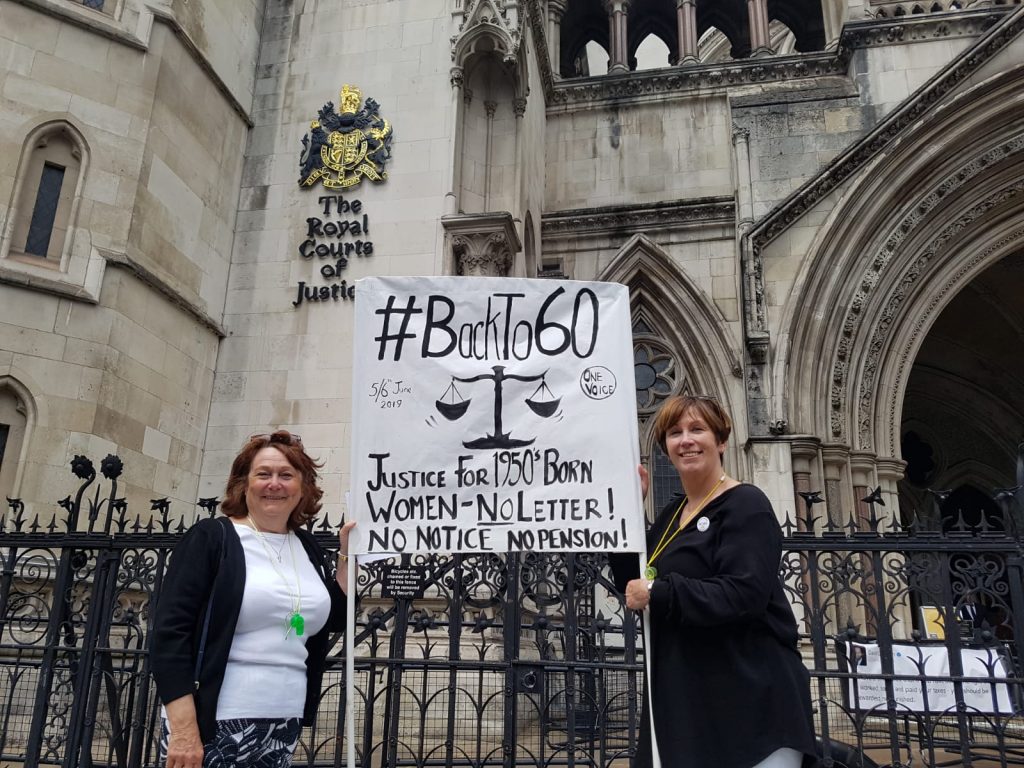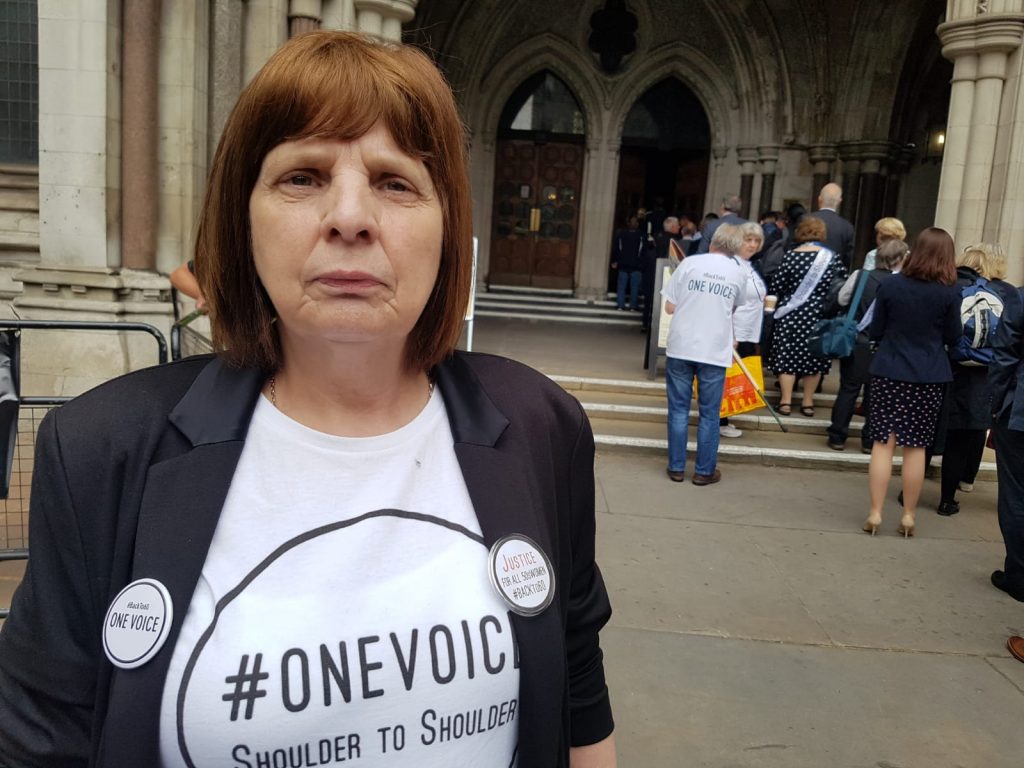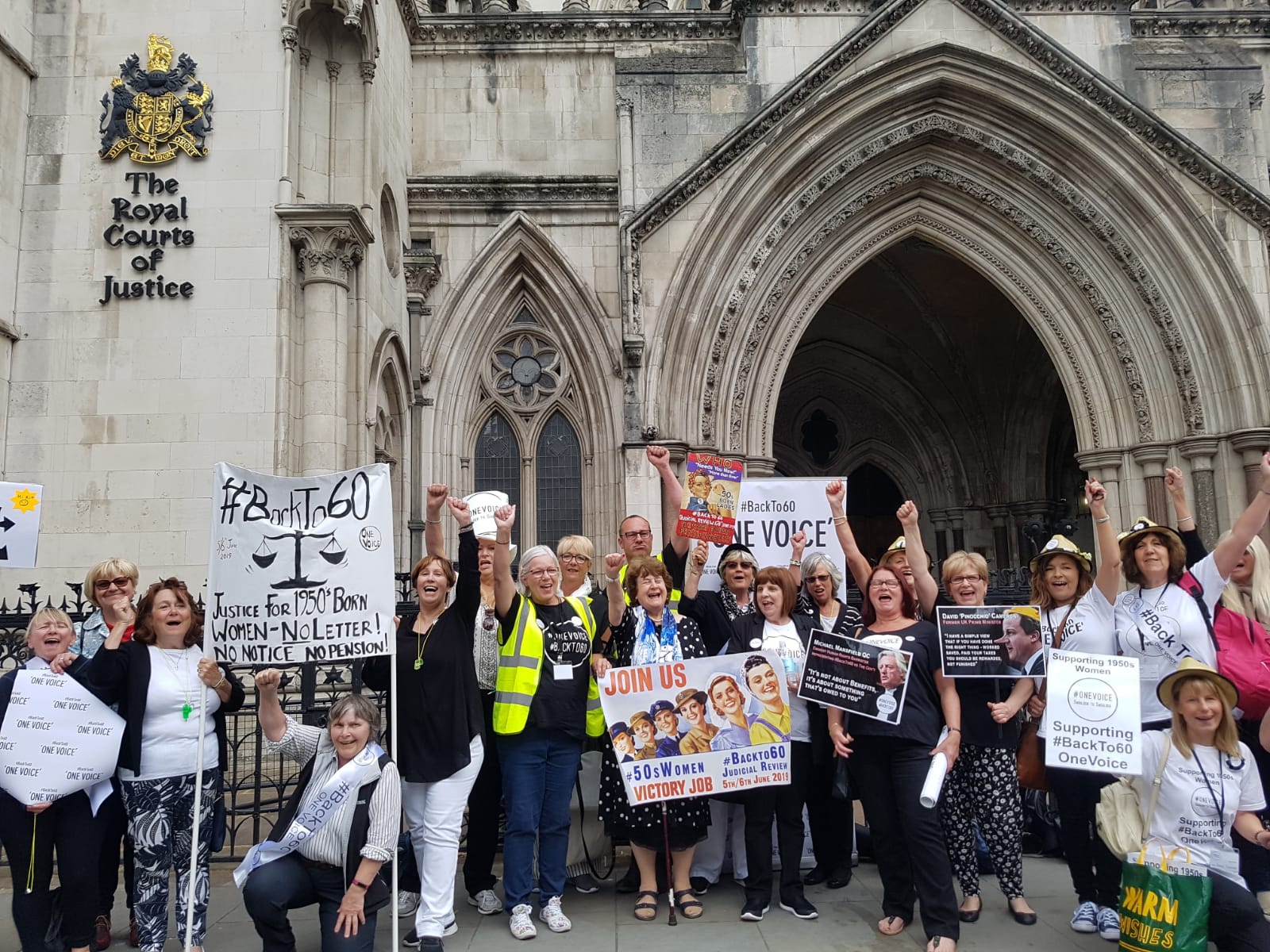The government’s efforts to equalise pensions unlawfully discriminate against a generation of women in their 60s who suffered “inequality within the workplace”, a court has heard.
High Court judges today (June 5) heard a legal challenge from members of campaign group BackTo60 accusing the Department of Work and Pensions of acting unlawfully in its efforts to level the difference in the pensionable ages between men and women.
Claimants Julie Delve, 61, and Karen Glynn, 62, were both due to receive their state pensions in 2018 and 2016 respectively but, following legislative changes, must now wait until they are both 66.
Michael Mansfield QC argued that the hike in the pension age treats women born on or after April 6 1950 less favourably than men and has resulted in a “proportionately much greater drop” in women’s income in relation to men.
The court heard that the change in law breaches Article 14 of the Human Rights Convention – which guards against discrimination on the basis of age and sex – as well as being contrary to the general principles of EU law.
The barrister also put forward the case that the government did not give adequate notice of changes, contrary to the requirements of procedural fairness.
“Although the objective was equalisation, what has happened is the reverse,” Mr Mansfield said, adding that nearly 3.8 million women have been affected.
“We would argue that it has been the case because it has imposed upon a generation who were already suffering inequality within the workplace which led to disadvantage.”
He added: “Between 1950 and 1970 there was a [situation] in which they were encouraged to stay at home to look after the family or care for elderly parents.
“It is only following that, that things have changed.”

BackTo60 campaigners outside the Royal Courts of Justice. Image Credit: Aaron Walawalkar / RightsInfo
Mr Mansfield spoke of a time in which employers encouraged married women to leave their jobs in exchange for paying a reduced NI contribution.
“This generation had to face a different social and political situation,” he added, referring to women born in the 1950s.
He cited statistics indicating that, in 2015-16, weekly pensions of £163.50 account for 88 percent of the above average net incomes for women, while making up only 57 percent of men’s.
“We say that if there is going to be a problem for the state in paying for these pensions, then the burden should not rest on the shoulders of the bridgehead group,” he added.
“If there is a burden to be carried it should be distributed across the ages and the sexes.”
A DWP spokesperson told Rights Info: “It would not be appropriate to comment on ongoing litigation.”
‘We Wanted Some Type Of Quality Of Life But That Has Been Snatched Away’

Mac Hawkins, a BackTo60 supporter outside the Royal Courts of Justice. Image Credit: Aaron Walawalkar / RightsInfo
Mother-of-two Mac Hawkins, 63, was among the dozens of protestors who gathered outside London’s Royal Courts of Justice amid today’s hearing.
She told RightsInfo that she discovered she would have to wait an extra six years to receive her pension by word of mouth at work, 18 months before she was due to turn 60.
“I was planning to retire at 60,” she said. “We wanted some type of quality of life but that has been snatched away.”
“I’ve got to continue working,” she said. “My husband is 10 years older than me – he has been given his basic state pension.
“I have got to carry on working because if I stopped I would not get anything.
“There is no way we could live just on the money he could get.
“Women have never had equality.
“I started work a week before my 15th birthday.”







